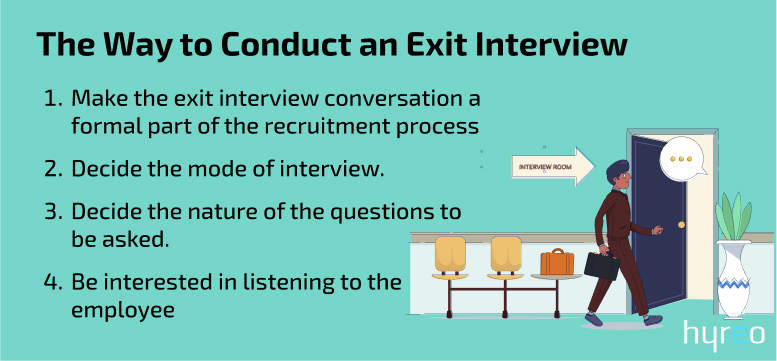Goodbyes are often tricky, whether they are in your personal life or professional. When employees leave an organization, many changes take place. Although the next obvious step is to find their replacement, it triggers a series of questions for the organization.
An employee’s resignation costs the organization approximately 33% of an employee’s annual salary to hire a replacement. Employee churning can happen due to:
- attrition (natural process) like retirement, layoffs, medical conditions, and personal reasons or
- voluntary turnover like employees getting better opportunities or
- involuntary turnover like employees getting terminated due to poor performance
In all three scenarios, organizations have invested a considerable amount in hiring, onboarding, and training employees and therefore lose revenue. But in cases 1 and 2, it also loses skill sets and expertise.
Even though most organizations ask employees to serve a notice period, this is rarely used to hand over work and share knowledge with their “successor”. This directly affects productivity and efficiency since the replacement invests a lot of time and effort in understanding a process.
All these factors make it extremely important to understand the needs and experiences of exiting employees. This will help organizations to include a process that increases employee retention and reduces turnover.
The need to conduct exit interviews
Exit interviews give an organization valuable insight on 3 levels:
- Current processes, employee needs and managerial effectiveness
- What makes a good employee experience
- Effective retention strategies
The way to conduct an exit interview

Make the exit interview conversation a formal part of the recruitment process
Exit interviews cannot be conducted in a ‘done-and-dusted’ way. Once an employee submits their resignation, the exit interview must be scheduled way before the last day. An interview scheduled in advance helps to understand the scope of retention as well as any challenges the employee may have faced. The interview can be conducted by HR or any manager who is neutral and empathetic. The employee can refuse to share feedback
Decide the mode of interview.
Exit interviews are usually conducted in person so that many aspects of employment can be clarified. However, many organizations also use questionnaires and online surveys or conduct telephone or video interviews. A combination of a questionnaire and an interview can also be used. Some questionnaires have a rating scale for various aspects of employee satisfaction.
Decide the nature of the questions to be asked.
An exit interview template can be created containing questions about the following aspects:
- Reason for resignation
- Professional and/or personal goals
- Satisfaction with the job role, salary, and manager
- Comfort with the work culture
- Met and unmet expectations
Be interested in listening to the employee
Although the employee may hesitate to divulge information about their reason for leaving, the interviewer’s attitude and interest in understanding the employee will help them speak their mind.
Reassure the employee of confidentiality if they wish to share challenges with the work culture or leadership. Transparent and empathetic conversations can also lead to employee retention by offering the employee different opportunities or long-term benefits. The exit interview is also an excellent opportunity to ‘clear the air’ and make the separation amicable.
Analyze the data
It is not enough to gather data from existing employees.
Analyzing data and trends in employee turnover is essential to change your existing process, leadership styles, or employee engagement.
Top exit interview questions you can ask
If you are a manager who is conducting an exit interview, think about the questions you would ask the exiting employee. Before you form a framework, you will need to get a clear idea as to what you intend to achieve from this interview. Based on this, formulate the questionnaire.
Below are some of the top exit interview questions you can ask:
- What is making you leave the organization?
- If the employee is leaving for another opportunity, you can ask ‘what prompted you to look out for another job?’
- What was the best part of working in the company?
- What challenges did you face while working in the company?
- What will make you stay/return to this organization?
- What kept you going so far? (during the employee tenure) Or what did you like in/about the company?
- What did you feel about your job role?
- Did you get enough support and opportunity for professional development?
- What can be improved in the existing systems and processes?
- What feedback do you have for the work culture and leadership?
- Which of your expectations were met or unmet since you joined the company?
- Did you feel valued in the company?
- Did you get enough training, coaching, and feedback to help you improve?
- Would you recommend the company to someone looking for a job?
- What would you change about the work culture?
- What or who motivated you in challenging times in the company?
Wrap Up
Exit interviews can provide a lot of insight if the interviewer is able to connect and communicate with the employee. Through the information obtained, employers can streamline their recruitment process, internal systems and processes, training and development and work culture.
All this is possible only if the management keeps an open mind and is willing to listen and accept negative feedback. By identifying data trends of the root cause of employee turnover, management can look at fixing gaps, realigning processes and improving organizational culture.
Whether an employee is retained or not, exit interviews can certainly give closure to the relationship between the employee and the organization.
FAQs on Exit Interviews
What is an exit interview?
An exit interview is a conversation with an employee to understand the reasons for their leaving the organization.
Who should conduct an exit interview?
Any representative of the management ((Human Resources or Leadership), who is willing to listen to the exiting employee’s perspective can conduct the exit interview.
How long should an exit interview be?
An exit interview can last anywhere from 30 min to an hour. In rare cases, when an employee has a lot to express or in case the employee is willing to consider staying back, the conversation can last about 90 min.
Can an employee refuse to attend an exit interview?
Attending an exit interview and taking the exit survey is voluntary. It is prudent for the management to not force the conversation as the outcome of a forced conversation will be futile.
Can an exit interview be automated?
Some surveys and questionnaires can be automated. However, it is strongly recommended to meet with the exiting employee face-to-face to connect better.
Should an exit interview be formal or informal?
Although it depends on the style of the interviewer, it is recommended that the conversation be more inclined towards being informal to make the employee feel more comfortable and help them open up.
How should the insights from the exit interview be shared with the management?
In case the feedback from an exit interview is negative, it is necessary to keep the identity of the employee confidential. Also, the interviewer needs to analyze the information obtained, check for credibility and then share a possible plan of action with the management (instead of sharing the feedback as it is).
Should the interviewer ask open-ended or close-ended questions?
The interview should start with open-ended questions so that it makes the employee elaborate on their responses. Close-ended questions can be used to clarify or narrow down information. Close-ended questions are also used in questionnaires.
What skills are needed in the interviewer?
An interviewer conducting an exit interview must have the following skills:
In a conversation-
Active listening
Patience
Empathy
Probing
Communication (choice of words, tone of voice and body language)
Beyond the conversation-
Documentation
Analytical skills
Problem-solving
Can an interviewer take notes during an exit interview?
Yes, the interviewer can take note of the important points that may serve as useful insights for the organization. However, the interviewer must maintain enough eye contact with the employee during the conversation. It is also better to inform the exiting employee that you would be taking notes during the interview.
How can exit interviews help organizations?
Insights from exit interviews can be used to take preventive steps or for remediation. Through corrective measures, companies can save money, preserve talent and expertise, and retain employees. It can also help maintain a healthy organizational culture.



